Soma
In biology, the term "soma" refers to the body of an organism, excluding the reproductive cells. It is the central part of the cell that contains the nucleus and other organelles responsible for various cellular functions.
Structure of Soma
The soma of a cell contains the nucleus, which houses the genetic material (DNA) of the cell. It also contains other organelles such as the endoplasmic reticulum, Golgi apparatus, mitochondria, and ribosomes, each playing a specific role in cellular processes.
Functions of Soma
The soma of a cell is responsible for carrying out various functions essential for the survival and functioning of the organism. These functions include:
- Cellular Metabolism: The soma is involved in various metabolic processes, including protein synthesis, energy production, and the modification of cellular products.
- Cellular Maintenance: It plays a role in maintaining the structural integrity of the cell and repairing any damage that may occur.
- Cellular Communication: The soma facilitates communication with other cells through signaling molecules and receptors.
- Cellular Transport: It is involved in the transport of molecules within the cell and between different cellular compartments.
Study Guide
When studying the concept of soma in biology, it is important to focus on the following key points:
- Understand the structure of the soma and the functions of its various organelles.
- Learn about the role of the soma in cellular metabolism and maintenance.
- Explore the importance of cellular communication and transport in the soma.
- Relate the concept of soma to the overall functioning of an organism and its significance in biological processes.
◂Biology Worksheets and Study Guides High School. Invertebrates
Worksheet/Answer key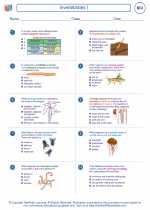 Invertebrates I
Invertebrates I  Worksheet/Answer key
Worksheet/Answer key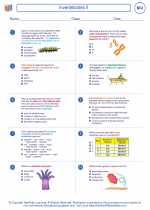 Invertebrates II
Invertebrates II  Worksheet/Answer key
Worksheet/Answer key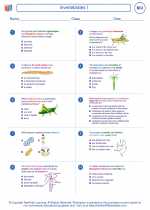 Invertebrates I
Invertebrates I  Worksheet/Answer key
Worksheet/Answer key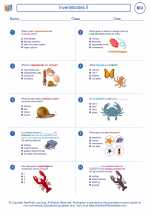 Invertebrates II
Invertebrates II  Worksheet/Answer key
Worksheet/Answer key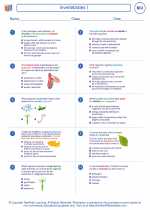 Invertebrates I
Invertebrates I  Worksheet/Answer key
Worksheet/Answer key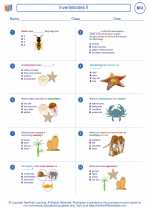 Invertebrates II
Invertebrates II  Vocabulary/Answer key
Vocabulary/Answer key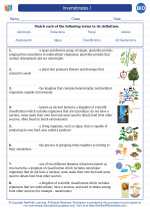 Invertebrates I
Invertebrates I  Vocabulary/Answer key
Vocabulary/Answer key Invertebrates I
Invertebrates I  Vocabulary/Answer key
Vocabulary/Answer key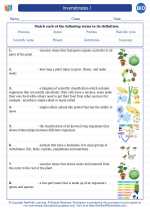 Invertebrates I
Invertebrates I 

 Worksheet/Answer key
Worksheet/Answer key
 Worksheet/Answer key
Worksheet/Answer key
 Worksheet/Answer key
Worksheet/Answer key
 Worksheet/Answer key
Worksheet/Answer key
 Worksheet/Answer key
Worksheet/Answer key
 Vocabulary/Answer key
Vocabulary/Answer key
 Vocabulary/Answer key
Vocabulary/Answer key
 Vocabulary/Answer key
Vocabulary/Answer key

The resources above cover the following skills:
Concepts of Life Science (SC1, SC2, SC3)
The student demonstrates an understanding of the structure, function, behavior, development, life cycles, and diversity of living organisms by describing the structure-function relationship